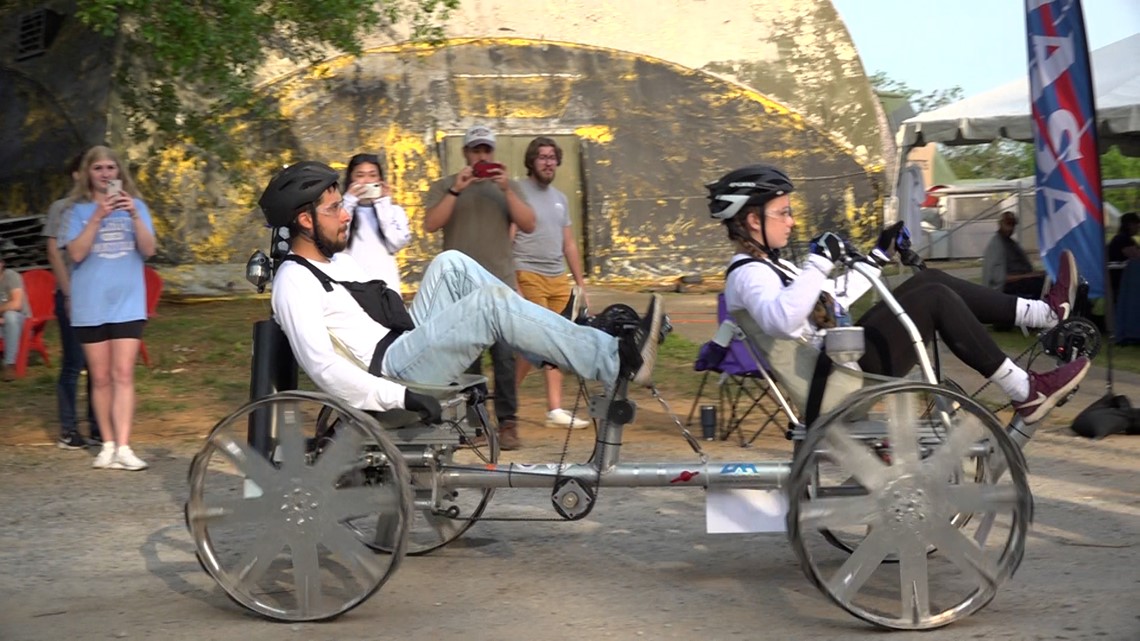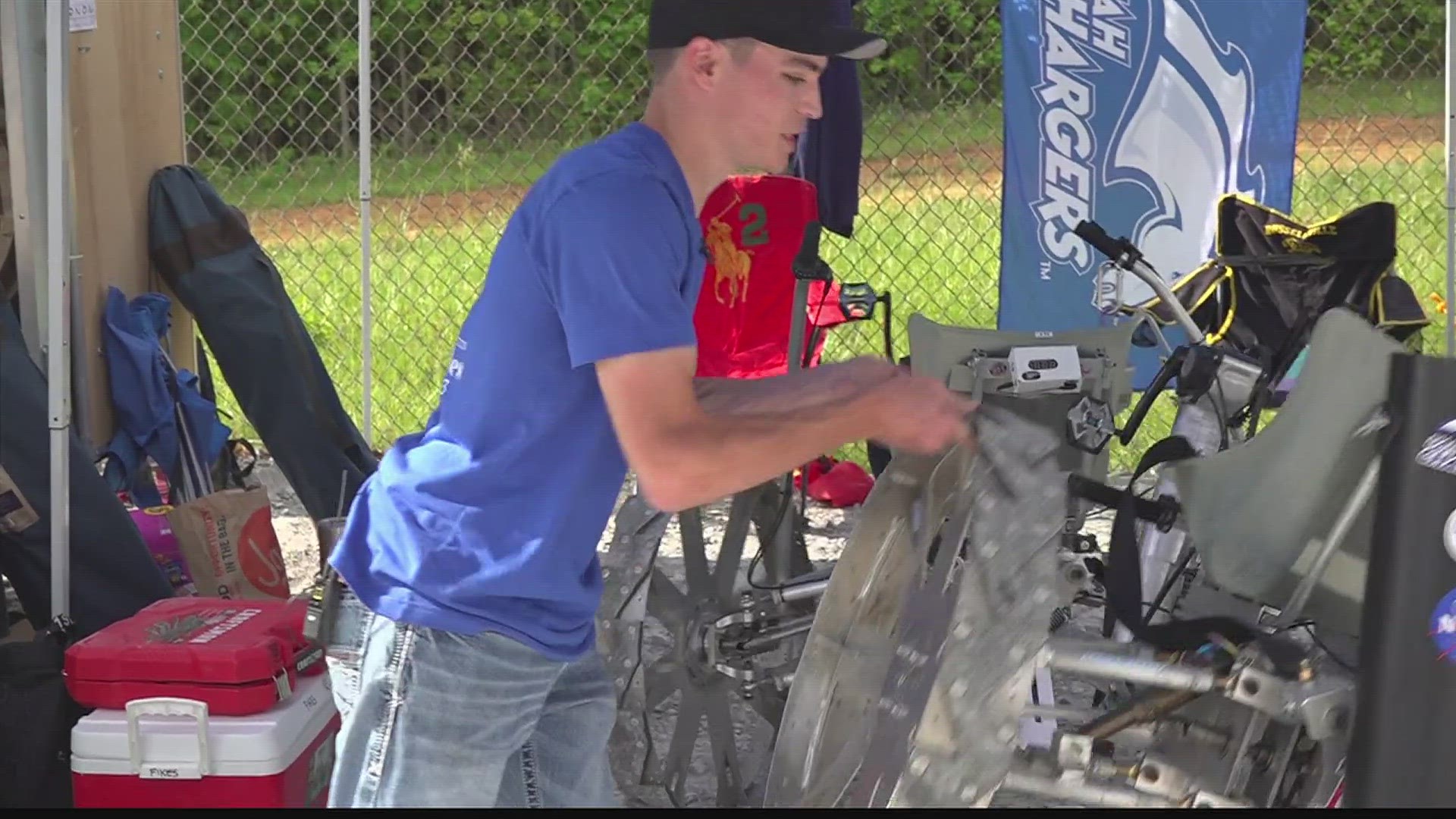HUNTSVILLE, Ala. — For the first time since 2019, NASA’s Human Exploration Rover Challenge (HERC) returns to in-person competition. More than 500 students from around the world will attempt to drive human-powered rovers across a half-mile-long obstacle course designed to simulate the geographical terrain of the Moon, Mars, and other distant bodies, and the students are enjoying the experience.
"It's been a great experience," said Jacob Springer, a student at the University of Alabama Huntsville. "It's been interesting to talk to students from other countries and see what their challenges were compared to ours."
The primary objective of HERC is for teams of students to design, develop, build, and test human-powered rovers capable of traversing challenging terrain and a task tool for completion of various mission tasks. "It takes really the full year as far as designing," Garyn Carl from the University of Central Missouri said. "From the initial planning aspects, to getting all the financial things in order, getting all the parts ordered through the university and then putting it together seems to take a couple of months -- as long as you got a good plan ahead."
Teams earn points for successful completion of design reviews, designing and assembling a rover that meets all challenge criteria, and successfully completing course obstacles and mission tasks. The team with the highest number of points accumulated throughout the project year in each category (high school and college/university) will be the winner.
"We spent all of our fall semester into design," Tommy Caillet from Ohio Northern University said. "Then we worked on building it, testing, and then finishing this just Tuesday before we came here to compete."
Teams also show off a little bit of personality by design or by giving the rover a cool name. We call it Hercules," Springer said. "It was kind of a play on words, the heart challenge and Hercules being, you know, the mighty man. We thought that was kind of a nice way to incorporate the challenge into our rover."


To conclude the 2023 season and to recognize all students, NASA will host an in-person awards ceremony Saturday, April 22, at 5 p.m. in the National Geographic Theater of the Davidson Center for Space Exploration at the USSRC.

